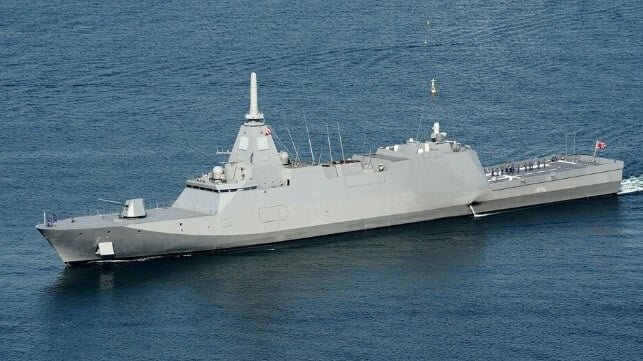Australia Awards Mitsubishi Heavy Industries $6.5 Billion Frigate Deal
On Tuesday, the Australian government made a significant announcement regarding its naval shipbuilding program. Mitsubishi Heavy Industries (MHI) has been awarded a lucrative $6.5 billion deal to build Australia’s next generation of “general purpose” frigates, with initial deliveries expected in 2029. This marks a rapid timetable for such a complex project, but MHI will leverage its existing Mogami-class frigate design to streamline the process and reduce upfront engineering hours.
The Mogami-class frigate is a modern multi-mission warship known for its capabilities in air defense and surface warfare. Designed to operate with a smaller crew to address cost and manpower constraints prevalent in modern navies, these vessels are highly automated and require approximately 90 personnel to operate. Australia’s iteration of the Mogami-class will feature an enlarged variant with 32 full-size Vertical Launch System (VLS) cells for anti-ship and anti-aircraft missiles.
This new fleet of warships will serve as replacements for Australia’s aging Anzac-class frigates, which were commissioned between 1993 and 2003. The Mogami-class offers enhanced range, firepower, and operational efficiency compared to its predecessors, aligning with the Royal Australian Navy’s (RAN) strategic objectives. Furthermore, its combat management system is interoperable with U.S. Navy-standard systems, providing a valuable advantage for the RAN, as noted by ASPI analyst Malcolm Davis.
Under the terms of the contract, the first three frigates will be constructed in Japan, with the remaining eight to be built at the Austal shipyard in Western Australia. However, recent workforce downsizing at the BAE Henderson complex, where the Australian-built hulls will be constructed, has raised concerns about the project’s timeline and resource allocation.
While the full cost of the Mogami-class program is yet to be finalized, negotiations are ongoing. The selection of MHI for this project comes as a disappointment to German defense shipbuilder ThyssenKrupp Marine Systems, the other contender in the bidding process. TKMS had proposed a smaller design, the Mako A-200, but parent company ThyssenKrupp’s decision to divest the division indicates a shift in strategic direction.
Image Source: Hiroshi Miyaji / CC BY SA 4.0

